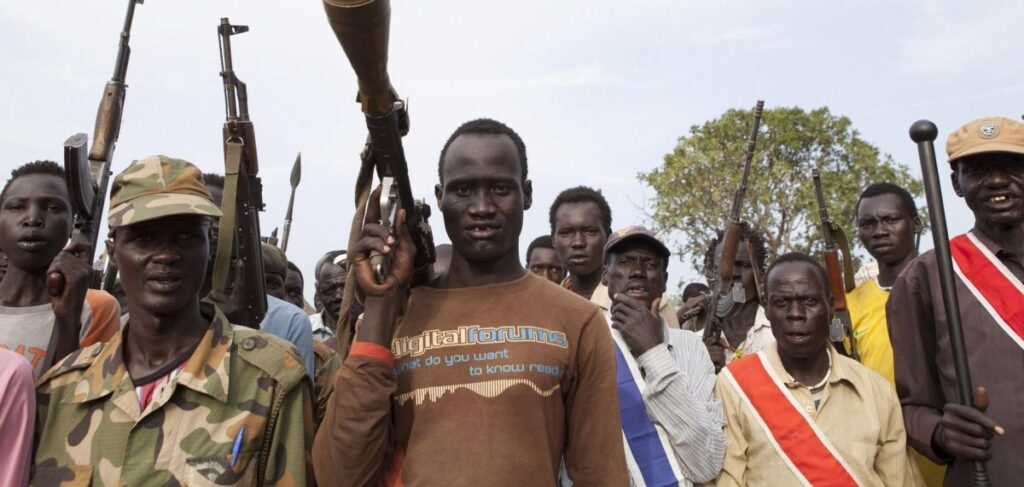Hon. Dr. Elia Lomoro, the Minister of the Ministry of Cabinet Affairs in South Sudan, on 25th April 2025 presented a controversial document titled “Strategic Response of the Revitalized Government of National Unity to the Nasir Incident……” The document was meant to outline the position of the Revitalized Government of National Unity (R-TGONU) on recent conflicts in the country, particularly the violent incident in Nasir town, Nasir County, Upper Nile State, earlier in March 2025. In a negative turn of events, the content of the document was met with outrage by the Nuer people, who saw it as an attempt to portray them as foreigners and persona non grata without exceptions. While many have already written about the matter, this piece takes a different approach: a critique of the document’s technical flaws, an analysis of its perceived implications, and a call for legal action to address the harm caused by the “Strategic Response.”
To begin with, the press statement bore the seal of the Republic of South Sudan, yet no specific institution—including the Ministry of Cabinet Affairs—claimed ownership. The document lacked a clear title and date. The phrase “Strategic Response” appeared within a lengthy sentence resembling an abstract rather than a proper heading. At the bottom, it read, “End of the Strategic Response.” This is highly irregular. The issuing institution was omitted, and the document was neither signed nor stamped. Such a presentation is anomalous and unprofessional. The government should take issue with this careless dissemination of official information. Official letterheads are readily available—why were they ignored for this document?
A closer examination reveals a disconnect between intent and content. The preamble (labeled “1. Preamble”) focused on the Nasir conflict dynamics, which it stated began on 3rd March 2025, mentioning key actors (SSPDF, SPLM/A-IO, White Army) without singling out the Nuer. The next section, “2. Background to the Nasir Conflict,” ostensibly promised an elaboration on the incident and its national implications. Instead, the content abruptly shifted to ethnic profiling. There is an obvious disjuncture: if the intent was to address the Nasir conflict, it failed; if it was about the Nuer, the preamble and background did not align. The ethnic profiling appeared out of nowhere, starkly incongruent with the document’s purported purpose.
Let me remind readers that a state is a political community comprising a population within defined territories under a single government. A “Nation-State” emerges when political boundaries align with cultural ones. South Sudan is multinational, home to many nations—the Nuer among them. The Nuer are co-owners and rightful citizens of South Sudan. To label certain Nuer counties or individuals as “friendly” is alien to South Sudan’s foundational norms and violates its constitution. Any Nuer leadership or individual could challenge this in court—including in Juba—with a high likelihood of success.
Conflicts are an inherent part of human societies, some more violent than others. Both nonviolent and violent conflicts are pervasive in South Sudan, and violent clashes against the state are not exclusive to Nuer territories—facts bear this out. Designating an entire people as “hostile” is both factually wrong and unconstitutional. Generalizations about the Nuer as “hostile” or “friendly” should follow scientific inquiry. Even in colonial times, the British government sent anthropologists like E.E. Evans-Pritchard to study resistant communities before acting. His research informed colonial policy toward Nuer spiritual leaders deemed persona non grata. In social science, generalizations require population sampling—did Dr. Elia attempt this? Even in Nasir and Ulang Counties, blanket generalizations remain scientifically baseless. In short, Dr. Elia Lomoro has become an “unproven UK scientist” despite boasting of being a “UK-proven scientist.” This is embarrassing.
Finally, I join South Sudanese leaders—particularly Nuer leaders—in calling for calm. The “friendly” label seeks to strip the Nuer of their citizenship, while “hostile” places them in adversarial opposition to the state, rendering them persona non grata. Such wishful thinking will die with its architects. South Sudan’s people endure immense hardship, and the Nuer are no exception. In troubled societies, hiccups are inevitable. Treat these caricatures soberly. The weight of internal strife affects stability and well-being—do not let these labels dictate your place in your homeland. They are mere hiccups from individuals grappling with their own struggles.
It is a constitutional right to demand accountability from public officials. Thus, I urge those opposed to this ethnic profiling to pursue legal action. The proper response is to sue Hon. Dr. Elia Lomoro in any competent court in South Sudan, the region, or Africa. Public office and free speech carry consequences when they infringe on citizens’ rights—Dr. Elia should be no exception.
The author, Machien Luoi T. Dagoor, is a citizen of South Sudan living in Juba. He can be reached at dhuretingting@gmail.com.
The views expressed in ‘opinion’ articles published by Radio Tamazuj are solely those of the writer. The veracity of any claims made is the responsibility of the author, not Radio Tamazuj.




